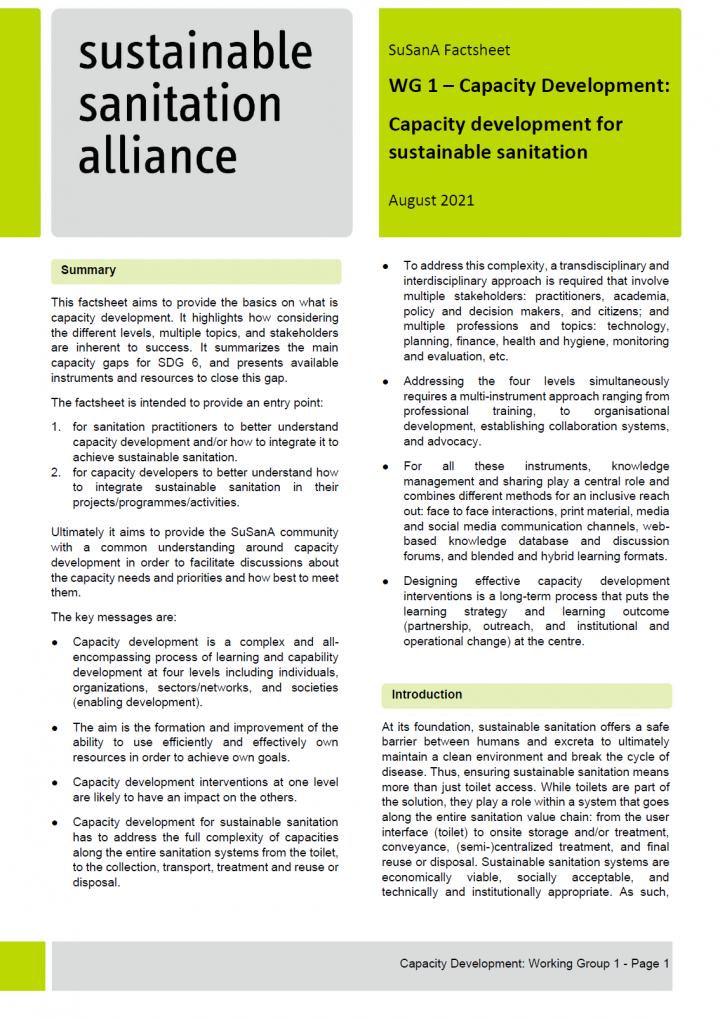Capacity development for sustainable sanitation Factsheet of Working Group 1 Spuhler, D., Kohler, L., Kapur, D., Volk, F., Staack, F., Ddieba, D., Sutter, F., van Soelen, S. (2021)
This factsheet aims to provide the basics on what is capacity development. It highlights how considering the different levels, multiple topics, and stakeholders are inherent to success. It summarizes the main capacity gaps for SDG 6, and presents available instruments and resources to close this gap.
The factsheet is intended to provide an entry point:
1. for sanitation practitioners to better understand capacity development and/or how to integrate it to achieve sustainable sanitation.
2. for capacity developers to better understand how to integrate sustainable sanitation in their projects/programmes/activities.
Ultimately it aims to provide the SuSanA community with a common understanding around capacity development in order to facilitate discussions about the capacity needs and priorities and how best to meet them.
The key messages are:
● Capacity development is a complex and all-encompassing process of learning and capability development at four levels including individuals, organizations, sectors/networks, and societies (enabling development).
● The aim is the formation and improvement of the ability to use efficiently and effectively own resources in order to achieve own goals.
● Capacity development interventions at one level are likely to have an impact on the others.
● Capacity development for sustainable sanitation has to address the full complexity of capacities along the entire sanitation systems from the toilet, to the collection, transport, treatment and reuse or disposal.
● To address this complexity, a transdisciplinary and interdisciplinary approach is required that involve multiple stakeholders: practitioners, academia, policy and decision makers, and citizens; and multiple professions and topics: technology, planning, finance, health and hygiene, monitoring and evaluation, etc.
● Addressing the four levels simultaneously requires a multi-instrument approach ranging from professional training, to organisational development, establishing collaboration systems, and advocacy.
● For all these instruments, knowledge management and sharing play a central role and combines different methods for an inclusive reach out: face to face interactions, print material, media and social media communication channels, web-based knowledge database and discussion forums, and blended and hybrid learning formats.
● Designing effective capacity development interventions is a long-term process that puts the learning strategy and learning outcome (partnership, outreach, and institutional and operational change) at the centre.
Bibliographic information
Spuhler, D., Kohler, L., Kapur, D., Volk, F., Staack, F., Ddieba, D., Sutter, F., van Soelen, S. (2021). Capacity development for sustainable sanitation Factsheet of Working Group 1 Sustainable Sanitation Alliance (SuSanA)
Filter / Tags
Publications by SuSanACapacity development (WG1)Publications by SuSanAFactsheets and policy briefsEnglish

